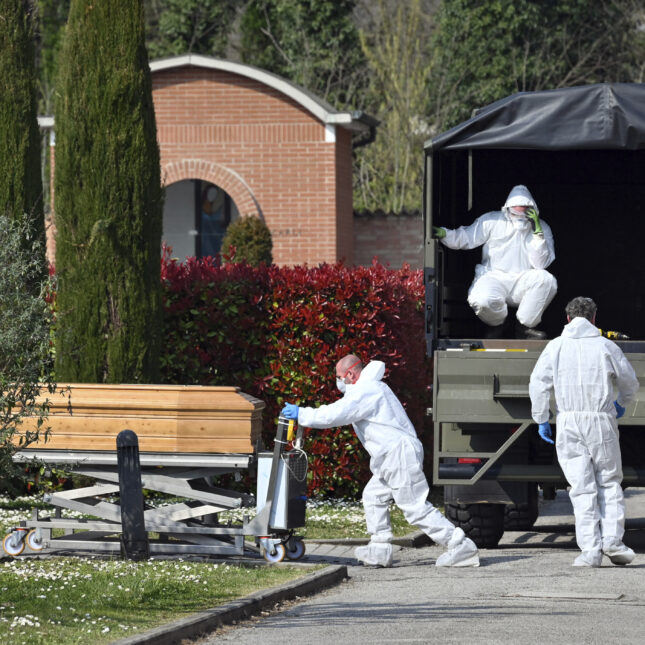
At this point the Covid-19 peril is well understood.
The metrics are plain. On March 15, two days after President Trump declared a national emergency, the United States counted 3,100 cases and over 50 deaths. Today: 49,594 cases and 662 deaths.
The economic menace also is crystal clear. Tens of millions of Americans shelter inside, shops and restaurants are closed, city streets and airports lie vacant. A ‘closed until further notice’ sign appears on the door of at least 40 percent of American commerce.
In the confrontation between medical experts intent on safeguarding Americans from a diabolical virus, and industrialists and financiers worried about securing the national economy, the doctors until now held their own. Governors, mayors, and sports league commissioners followed their counsel. Large events shut down. People were ordered out of offices and into their homes. The president, who’s been episodically disinterested, then erratically concerned, buoyed medical opinion with his emergency declaration.
That uneasy parity between safety and economy is about to radically change.
On Monday, the president displayed another familiar dimension of his personality and public style: his precipitous decision-making. He signaled his intent to confront governors and mayors and relax or end restrictions on businesses and personal movement. “America will again — and soon — be open for business,†the president said on Monday. “Very soon, a lot sooner than three or four months that somebody was suggesting. A lot sooner.â€
Today he wanted the country “opened up and just raring to go by Easter,” and added that as early as Monday he is going to make the most consequential presidential decision of our lifetimes. Trump indicates he is prepared to shove public safety to the side and throw the federal government’s weight to protecting the stock market, jobs, business income, and corporate profits. The consequences for Americans are both fairly simple to predict and beyond measure to calculate.
First let’s address the president’s perspective. Trapped in a crisis that is killing Americans that he was far too late to acknowledge or address, the decision to relax social distancing is a last-ditch effort to preserve his presidency and re-election. He’s convinced himself that the mortality risks of Covid-19 are as acceptable as those from the flu and gun homicides, and that sufficient numbers of Americans will believe him. They’ll return to their goods-consuming, full-bodied, entertainment-rich, travel-oriented lives.
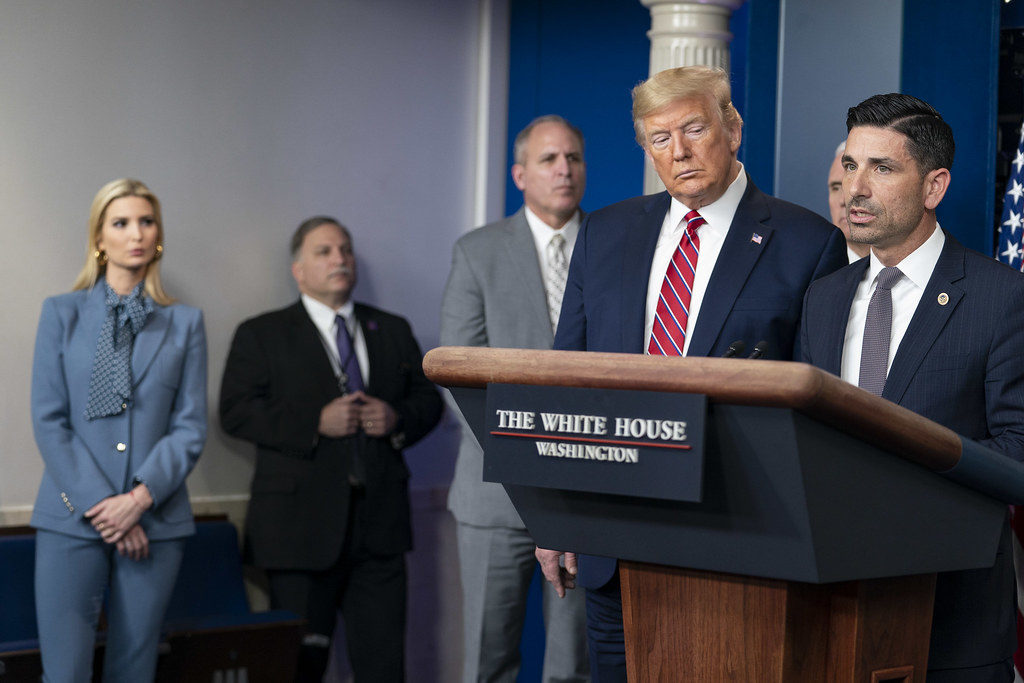
If that goal is achieved, Trump will have revived the economy and headed off the mass demonstrations and ugly public protests that are sure to develop if Americans grow desperate because they’ve run out of money. In short, Trump is declaring his readiness to take a momentous risk affecting every American. It’s plain to me that the president is making a bid for history.
Now let’s address why, if social distancing is relaxed, it’s the most dangerous decision ever made by a U.S. president. Because 1) relaxing social distancing will make it easier for the coronavirus to spread and cause far more tragedies and 2) because of that, most Americans won’t be leaving their homes except for essential needs anyway.
Since the first days of January, when the world and the United States were alerted to the Covid-19 epidemic in China, we’ve developed ever more precise data points about the contagion capacity and ability of the coronavirus to produce severe illnesses and terrible, painful, lonely deaths. As of today, Covid-19 has infected over 400,000 people around the world and killed 18,250.
The United States is at the start of the steep vector line measuring cases and deaths. Judging from the comparable vector lines of other countries, particularly Italy and Spain, the United States has weeks more to go before the number of Covid-19 infections and deaths begin to slow.
President Trump thinks he’s smart to cite the flu, car accidents, and shootings as reasonable comparisons to the dangers of the coronavirus. But they aren’t reasonable. First, those three known producers of death are features of modern life that people are either familiar with, and except for the flu virus, dangers that people can see.
Americans are extraordinarily comfortable with risks they can see. It’s one reason why gun control legislation has such trouble gaining traction. It’s why Californians build homes in and near forests that burn like exploding bombs. It’s why it took years to make seatbelts standard equipment in cars.
Though he’s said to be a germaphobe, Trump apparently forgot that Americans fear risks they can’t see . It’s why a national tizzy occurred in 1982 when bottles of Tylenol were poisoned with potassium cyanide, killing seven people in Chicago. It’s why people drink bottled water when most municipal drinking water is just as good and pure and safe. It’s why scientifically unfounded assertions that vaccines cause autism steer parents to keep their children away from vaccination and produce international outbreaks of measles. It’s why four Ebola cases in the United States in 2014 produced another national tizzy.
Because it can’t be seen and has shown itself to be stupendously dangerous, Covid-19 is going to keep people indoors and isolated for weeks more than President Trump prefers.
Here’s one more relevant point. Give Trump his due. Making decisions that weigh the safety of Americans and the sturdiness of the economy is the most decisive challenge of this crisis. But Trump is not the guy who knows how to do that. He’s too self-centered and undisciplined. He’s just not capable of balancing on the tightrope between safety and economy long enough to get the job done.
A great leader, adept at managing the many dimensions of a crisis that could be the worst his or her nation ever encountered, would act with much more grace and care. The script is not hard to write or follow. It should go like this:
Alert the country about the difficulty of achieving progress on both fronts. Explain it on national media two weeks before declaring a national emergency, the intent being to display your authentic view that the virus is a major threat. You are declaring a national emergency to make it easier to put in place measures to attack the virus, treat the victims, and keep the health care system from being overrun.
Your primary goal at this point is to keep people at a social distance for at least a month. Explain that scores of sick and dead people will not help revive economic activity. Tell your citizens that you are also ordering up various measures to protect the brave Americans at the frontlines, particularly doctors and nurses and hospital workers, with the gear and equipment and support they need. Let them know you’re working with Congress to swiftly put money in your pocket to take care of you and your family. A month from now, we’ll see where we are. We’ll evaluate and adjust our strategy as needed.
We’re Americans. We can do this.
.
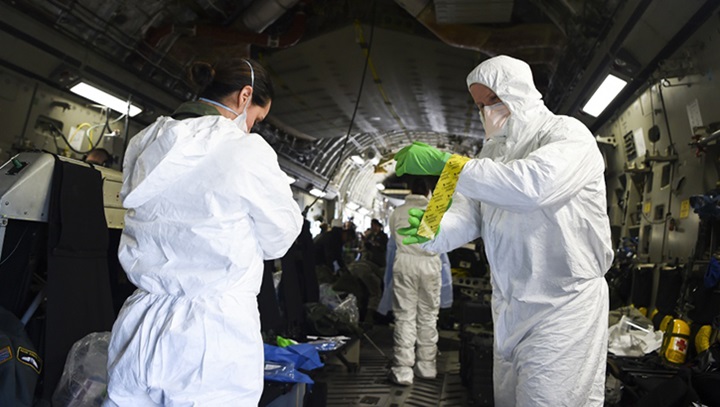
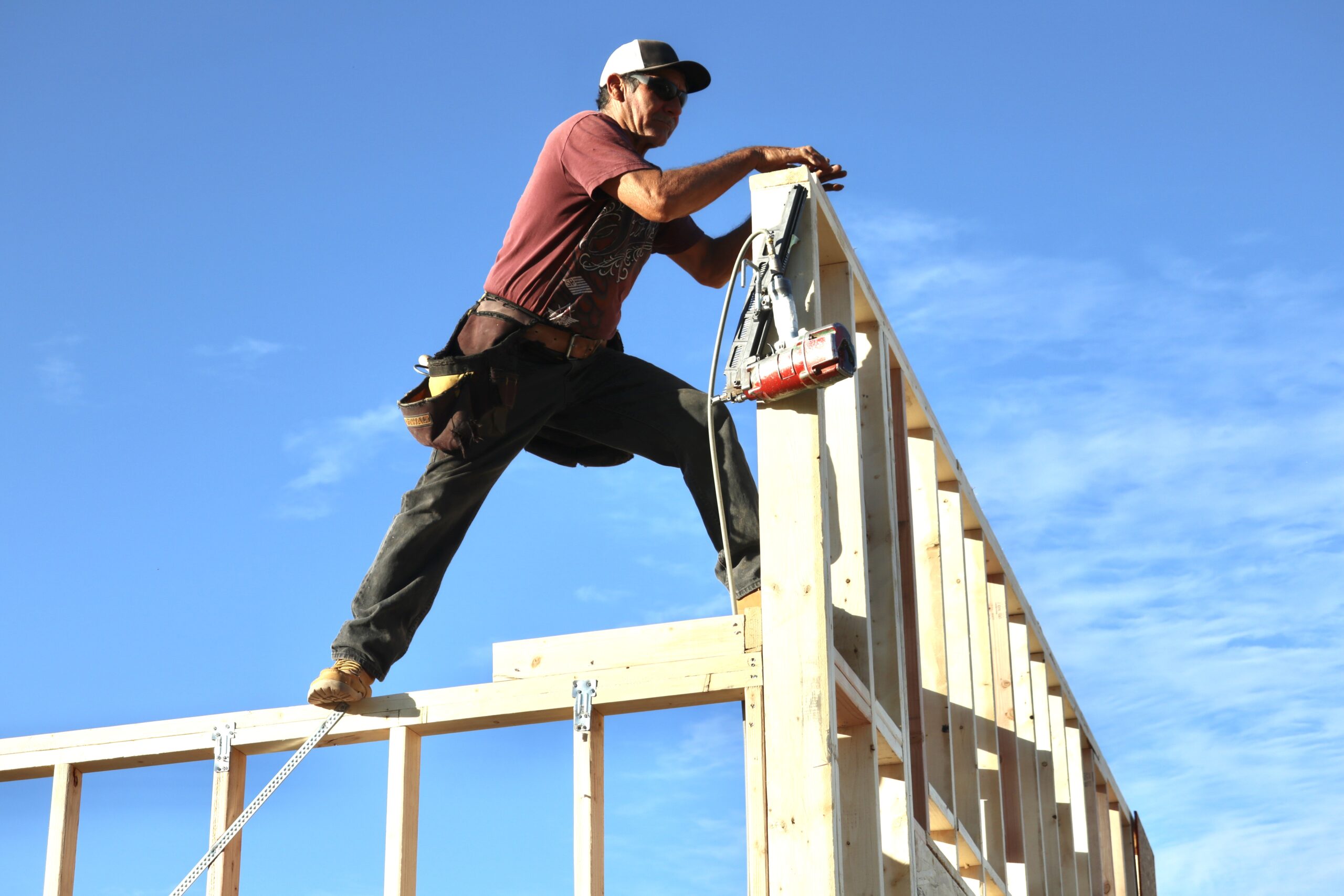
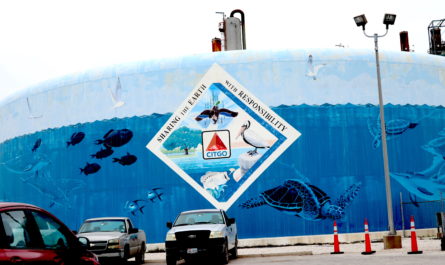
Articulate and a well informed article, as always composed by you, Keith.
Once again, thank you for clearly laying out facts, end results and and decision making.
Thank goodness for the mayors and governors implementing the citizenry protection with stay-at-home executive orders.
From a grateful Michigan resident!
Great article! I totally agree with your conclusion. Well written. Thank you for sharing your opinion which is accurate and most informative. Thank you and be safe.